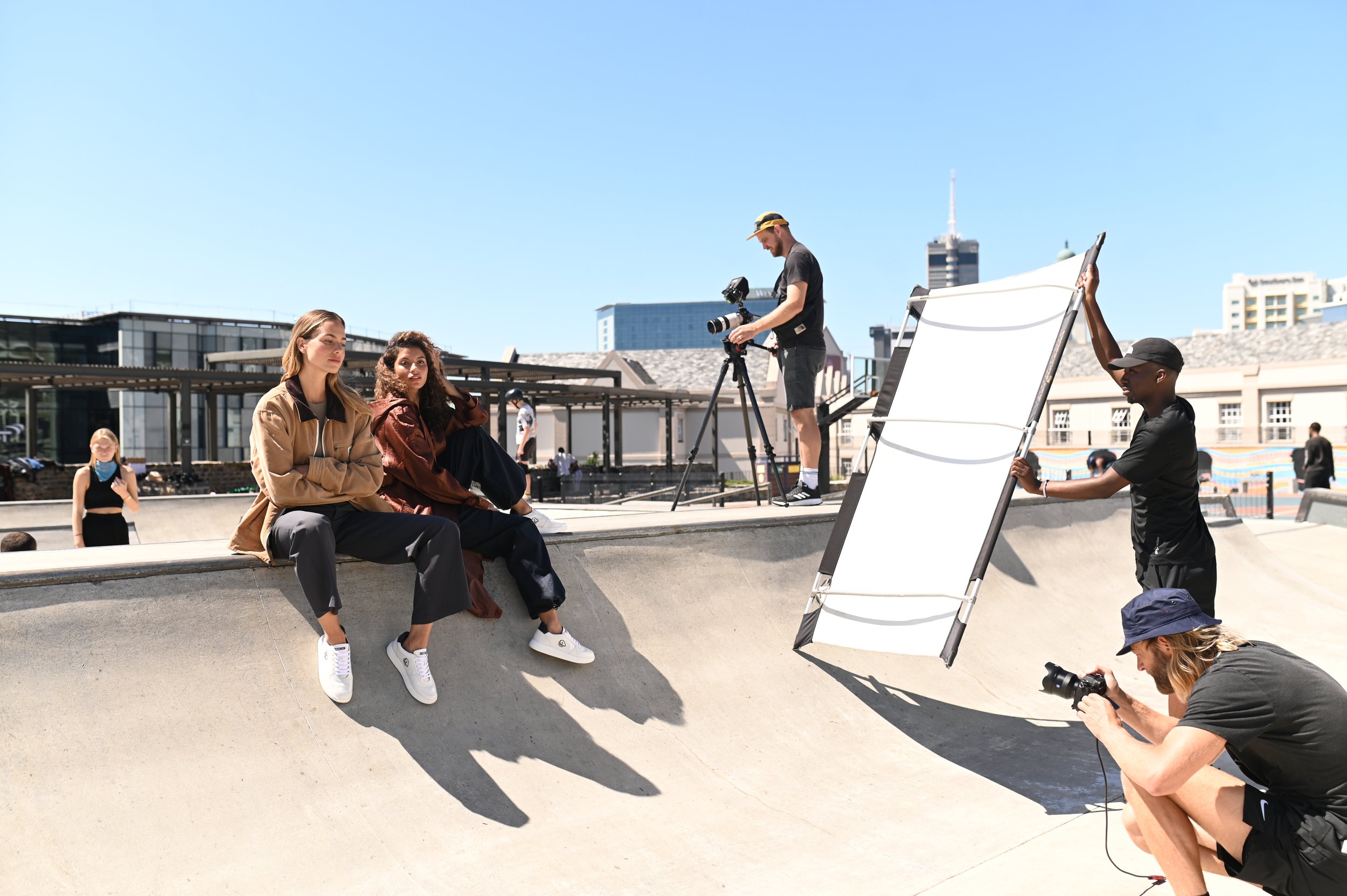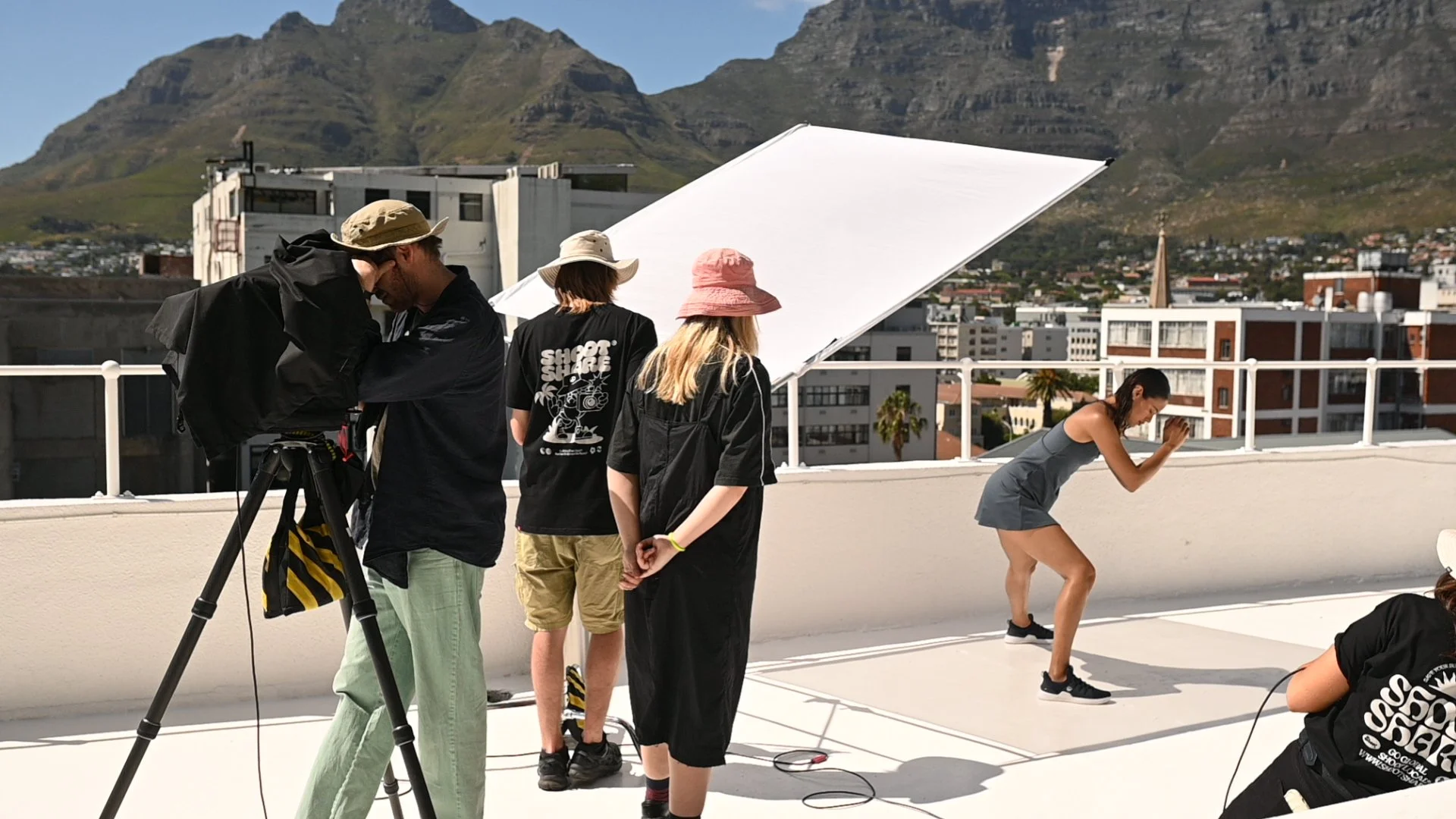ShootShare Founder Q&A: Why AI Isn’t the Answer for Our Industry
ShootShare: We’re seeing a growing trend toward AI-generated content in the creative industry. What are your thoughts on this shift?
Julia (Founder/CEO of ShootShare):
There’s no denying that AI has become a popular tool in some industries, and yes, we’ve even seen some of our clients experimenting with AI-generated models and backgrounds. But for our industry, I believe that’s a step in the wrong direction. What consumers want today is authenticity. They’re looking for realness in the brands they support, and AI can never replicate that.
Brands have been shifting toward more relatable, candid moments in their advertising. People no longer want to see perfect, polished images. Instead, they want to feel a genuine connection with brands that represent their values. AI might create images quickly, but it lacks the heart that resonates with people. It strips away that human connection.
ShootShare: You’ve mentioned that inclusivity and diversity have become a big focus for brands. Can you explain why this matters and how AI affects that?
Julia:
Absolutely. Inclusivity and diversity are core values that many brands have embraced, or at least claimed to. Over the past few years, we’ve seen a lot of movement in the industry toward featuring models with different skin tones, body shapes, and identities. This was a direct response to consumer demand—people wanted to see themselves represented in the media they consume.
But when brands shift to using AI models, they’re essentially reversing all that progress. AI can generate any look, sure, but it’s still a manufactured image. It lacks the depth and realness that people bring to a campaign. The entire movement toward inclusivity was built on the idea of reflecting everyday people, not computer-generated avatars.
This trend of AI-generated content feels like a betrayal, especially from brands that once promoted themselves as champions of diversity. It’s clear that some brands were simply following the trend without truly believing in it.
ShootShare: What about the impact on local creatives and production crews? How does AI affect them?
Julia:
That’s a critical point. When brands use AI to replace models, photographers, stylists, and other crew members, they’re taking jobs away from real people. At ShootShare, we pride ourselves on working with local talent—creatives, models, photographers, stylists, everyone. By doing so, we support the communities we operate in while also reducing our carbon footprint by working locally.
When brands replace that entire ecosystem with AI-generated content, they’re not just cutting costs—they’re cutting out real people and real livelihoods. And that’s a huge problem for an industry that prides itself on human creativity and collaboration. AI might seem like a fast, convenient solution, but it comes at the cost of jobs and the vibrancy that real creatives bring to the table.
ShootShare: So why do you think some brands are making the switch to AI, even if it seems to go against the values they’ve promoted?
Julia:
Honestly, I think it comes down to economics. For some brands, AI is simply a cost-saving tool. They can generate endless images quickly and cheaply, but it’s a short-term solution. These are often the same brands that were greenwashing—using sustainability as a marketing tool without actually committing to real change.
By adopting AI, they reveal what really matters to them: cutting costs, not staying true to their core values. It’s disappointing, but not surprising. When a brand doesn’t truly believe in its own sustainability or inclusivity claims, it has no problem shifting to AI when it becomes economically convenient.
ShootShare: At ShootShare, you’ve taken a strong stance against AI-generated content. Can you explain why that is?
Julia:
At ShootShare, we believe in the power of real people and real stories. Our shoots are always rooted in reality. We use real locations, real models, and local artists because that’s what consumers want—they want to connect with brands that are authentic, brands that show real diversity, and brands that care about the planet.
By excluding AI from our work, we ensure that the content we produce stays true to the values we believe in—sustainability, inclusivity, and authenticity. We don’t want to replace human creativity with technology. Instead, we want to support it, nurture it, and celebrate it.
ShootShare: You mentioned earlier that AI-generated content doesn’t resonate with consumers. Can you elaborate on that?
Julia:
Absolutely. Consumers today are more savvy and discerning than ever. They can tell when something is real versus when it’s manufactured. Case studies have shown that AI-generated content often falls flat because it lacks the emotional connection that comes from working with real people. When consumers see a product or a campaign, they want to feel a connection, like the brand understands them.
This is where diversity and inclusivity come in again. The whole movement around these values was born because people wanted to see themselves reflected in the brands they support. AI can’t offer that same level of connection—it’s just an algorithm. Real people bring life, energy, and authenticity to a campaign, and that’s what consumers are drawn to.
ShootShare: Finally, what’s the message you want to send to brands and consumers about the role of AI in creative production?
Julia:
The message is simple: creativity is human, and it’s worth protecting. Brands that care about their consumers and the world around them need to stay true to their values. If they say they care about inclusivity, diversity, or sustainability, they should show it by working with real people and local communities.
At ShootShare, we only work with brands that share these values. We believe in the importance of staying human—because that’s what connects us all. AI might offer convenience, but it will never replace the creativity, authenticity, and connection that real people bring to the table.




